Biography
Hi, I am a post-doctoral researcher at the Leibniz University Hannover. I am an applied economist, my main fields are development economics, environmental economics and political economy. I work with large and unique datasets using up-to-date econometric methods to develop interesting insights that have important policy implications.
I visited UC San Diego for an academic research stay in 2021-22. In 2025, I completed my PhD under the supervision of Prof. Martin Gassebner (LUH) and Prof. Uwe Sunde (LMU).
- Development Economics
- Environmental and Urban Economics
- Geospatial, textual data
PhD Economics, 2019-2025
Leibniz University Hannover
Visiting Researcher, 2021-2022
UC San Diego
MSc Economics, 2016-2019
LMU Munich
BA Philosophy & Economics, 2012-2016
Bayreuth University
Publications
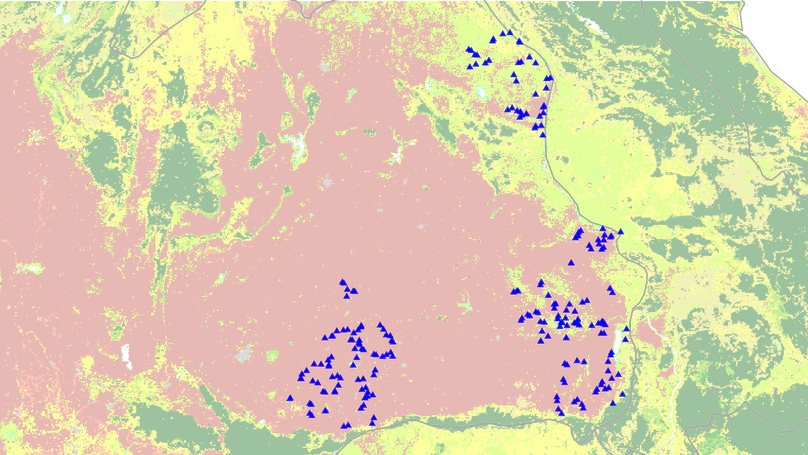
A growing body of literature indicates that heat stress and precipitation deficiencies can pose a critical threat to human health, particularly in less developed countries with low coping capacities and high exposure. The aims of this study are twofold. First, we shed light on the recall of drought events in rural Thailand by linking longitudinal survey data with objective meteorological data. Here, an anomaly in the survey design serves as a natural experiment. We find that a shorter time interval between surveys has a large positive effect on households correctly reporting a drought event. Second, we examine the health effects of droughts comparing two drought measures. In our panel over seven waves, we find a strong effect on diseases, which is slightly stronger for the objective measure than when using the reported drought measure.
Current Research
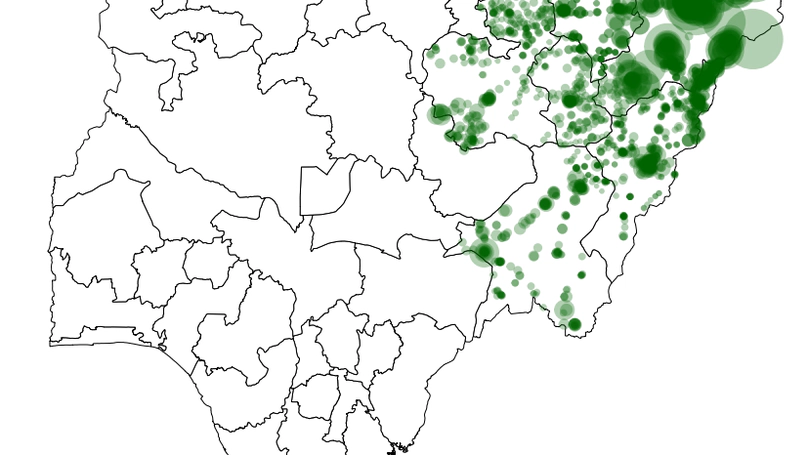
We examine the link between violent attacks of the Islamic extremist group Boko Haram, forced migration, and the empowerment of women in Nigerian host communities. We find positive effects of distant attacks on the economic well-being of women, their use of modern contraceptive methods, and rejection of traditional gender views.At the same time, however, the findings show an increase in the risk that women experience domestic violence. We then examine forced displacement as a channel and its importance relative to other possible channels for the spatial effect dispersion. The results are different for Fulani pastoralist-farmer clashes over natural resources.
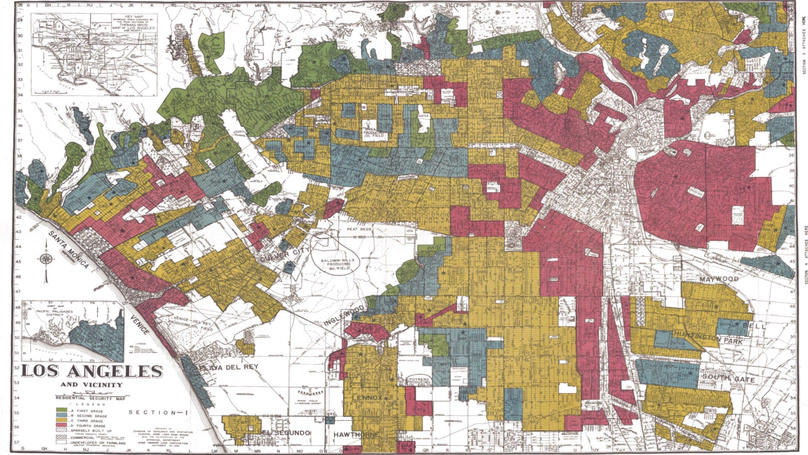
Environmental inequalities, such as unequal exposure to pollution and climate risks, persist across racial and socioeconomic groups in the United States. This paper re-examines the role of the Residential Security Maps created by the Home Owners’ Loan Corporation (HOLC) in the 1930s, which graded neighborhoods according to perceived mortgage risk and have been widely linked to long-run racial segregation and environmental disadvantage. A common view holds that these maps not only reinforced residential segregation but also directly shaped the spatial distribution of environmental hazards, including air pollution, flood risk, and extreme heat. We evaluate this claim using a causal framework that combines machine-learning predictions of counterfactual HOLC grades in unmapped cities with a spatial difference-in-differences design. Our results confirm that the maps modestly increased racial sorting and segregation, consistent with prior work. However, we find no evidence that HOLC mapping independently affected the siting of environmental or climatic hazards. Differences in air pollution, flood risk, heat exposure, and mortality across historical grades are quantitatively similar in mapped and unmapped cities. These findings suggest that contemporary environmental inequalities primarily reflect residential sorting and discriminatory practices that operated broadly across U.S. cities, rather than an additional siting effect uniquely induced by the HOLC maps, which we do not detect.
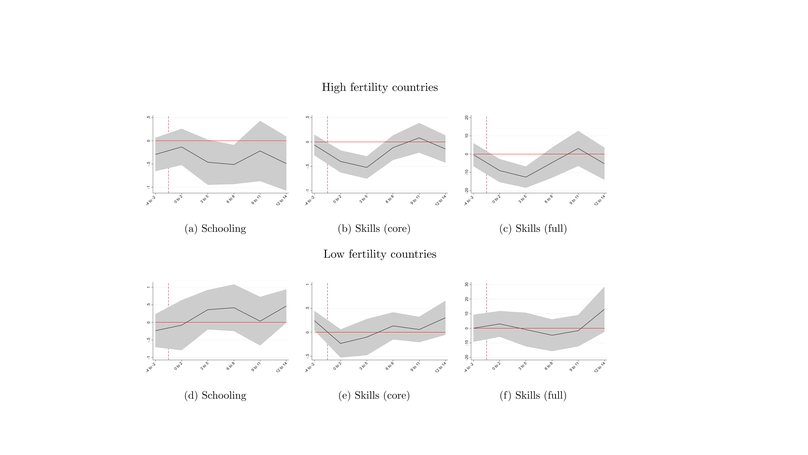
A growing body of evidence shows that adverse environmental conditions affect human capital and socio-economic outcomes. However, little is known about whether the experience of such events early in life has effects on skill formation that are long-lasting and persist into adulthood, and about whether the demographic context mediates these effects. Here, we shed first light on these questions by combining data from a large cognitive skills survey spanning more than 30,000 individuals from birth cohorts over five decades in 11 countries, with retrospective information about weather conditions at the local level during early childhood. The results show that drought exposure during childhood has a negative effect on skill formation that persists later in life. This effect is mainly restricted to a high-fertility context, mitigated in families with high socio-economic standing, and by parents actively involved in their children’s school performance.
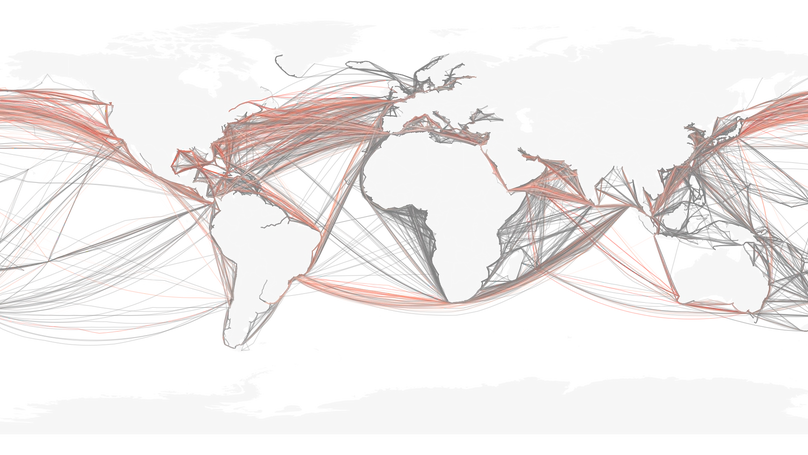
This paper investigates how much bilateral trade is affected by temporary disruptions of shipping networks caused by storms. Specifically, we examine how much trade is directed to other shipping routes or does not take place at all. We unpack the aggregate impact of oceanic cyclones by examining transportation volume and freight costs by a major container ship company. In event-studies nested in a gravity-style equation, we find that a cyclone reduces trade by 1.3% between countries across all modes of transport, while this effect more than doubles for affected port-pairs. After a storm, shipping firms charge higher freight costs on affected routes amplifying the trading impact. Adjacent shipping routes step in as substitutes for minerals and chemicals. Data on geo-located ship voyages show that following a storm, ships travel at slower speed incurring delay by up to 30 hours depending on the shipping company.
publications
Current research
Recent & Upcoming Talks
2024
EEA (Rotterdam), German Development Economics Conference (Hannover), European Association of Environmental and Resource Economics (Leuven), Workshop on Causal Inference with Spatial Data (Essen), Verein für Socialpolitik (Berlin), Job Market Preparation Seminar by VfS (Berlin), Beyond Basic Questions (Groningen)
2023
German Development Economics Conference (Dresden), Verein für Socialpolitik (Regensburg), Leibniz Environment and Development Symposium (Essen), European Public Choice Society (Hannover), Ruhr Graduate School (Bochum), Mannheim Conference on Energy and the Environment (Mannheim), Beyond Basic Questions (Stuttgart)
2022
European Public Choice Society (Braga), Beyond Basic Questions (Bern), Hike & Research Workshop in Economics (Goslar)
Experience
- Economics of Education Area
- Energy, Climate and Resources Area
Contact
Feel free to contact me, I am looking forward to your message.
- julian.wichert@ihe.uni-hannover.de
- Königsworther Platz 1, Hannover, 30167